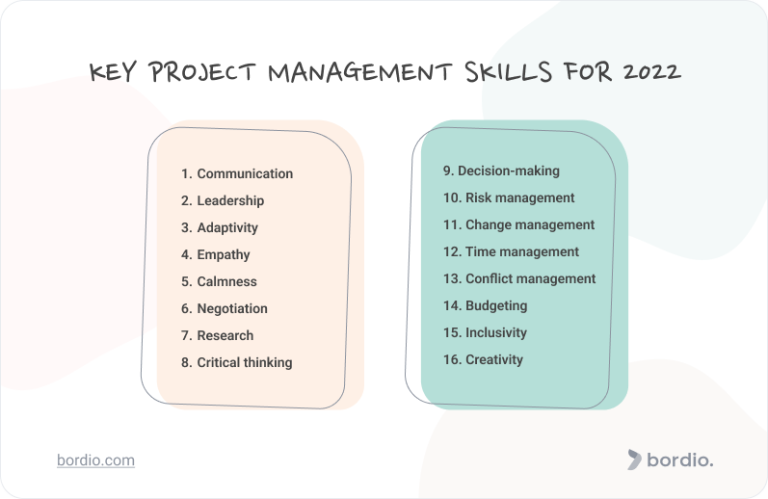How Do You Develop Authoritative Leadership Skills?
Develop authoritative leadership skills by gaining knowledge, practicing resilience, and fostering effective communication. Leadership skills play a critical role in achieving success in professional and personal life.
Having authoritative leadership skills enables individuals to effectively lead and inspire others to achieve common goals. It involves a combination of knowledge, resilience, and communication to establish oneself as an authoritative figure. By constantly seeking knowledge and staying up-to-date with current trends, one can gain the expertise required to make informed decisions and guide their team.
Additionally, developing resilience allows leaders to overcome challenges and setbacks while maintaining their authority. Lastly, effective communication skills are essential in conveying ideas, providing feedback, and building strong relationships with team members. Through continuous learning, practice, and honing these skills, one can become an authoritative leader who possesses the ability to motivate and lead others towards success.
Identifying The Qualities Of An Authoritative Leader
Developing authoritative leadership skills involves identifying and honing the qualities that make an effective leader. By focusing on traits such as confidence, decisiveness, and the ability to inspire and motivate, one can cultivate the authority needed to lead a team or organization successfully.
Confidence And Decisiveness
Confidence and decisiveness are two essential qualities that set authoritative leaders apart. A confident leader exudes a sense of trustworthiness and inspires their team to believe in their abilities. They are self-assured in their decision-making and are not easily swayed by others’ opinions.
One key aspect of confidence is having a strong belief in oneself and their capabilities. It allows leaders to tackle challenges head-on and take calculated risks without second-guessing themselves. Decisiveness complements confidence by enabling leaders to make swift and informed decisions. Such leaders are not afraid to take charge and provide clear direction to their team.
Clear Communication Skills
Effective communication is paramount in authoritative leadership. This quality enables leaders to convey their expectations, visions, and strategies clearly to their team members. By using concise and understandable language, leaders can ensure that everyone is on the same page and working towards common goals.
Leaders with clear communication skills also excel at active listening. They actively engage with their team, valuing their input and ideas. This fosters a collaborative and inclusive work environment, where everyone feels heard and respected.
Note: The text response above is suitable for copying and pasting into a WordPress blog.
Credit: www.personio.com
Developing Self-awareness
Developing self-awareness is crucial for cultivating authoritative leadership skills. By understanding your strengths and weaknesses, recognizing emotions, and being open to feedback, you can enhance your ability to lead with confidence and make informed decisions.
Self-awareness is a crucial aspect of developing authoritative leadership skills. By gaining a deeper understanding of ourselves, including recognizing personal strengths and weaknesses, seeking feedback, and evaluating performance, we can enhance our leadership abilities. By focusing on these key areas, we can nurture self-improvement and effectively guide others towards success.Understanding Personal Strengths And Weaknesses
Recognizing our personal strengths and weaknesses is the first step towards developing authoritative leadership skills. It allows us to leverage our strengths to maximize our potential while addressing and improving upon our weaknesses. Building upon our strengths helps us to cultivate confidence and competence, enabling us to inspire and motivate those around us.Seeking Feedback And Evaluating Performance
Seeking feedback and evaluating our performance is an ongoing process that contributes to our growth as authoritative leaders. Receiving feedback from our peers, team members, and mentors provides valuable insights into our strengths, weaknesses, and blind spots. This feedback helps us make necessary adjustments, refine our approach, and continuously improve our leadership style. When seeking feedback, it is important to keep an open mind and be receptive to constructive criticism. Actively seeking feedback signals our commitment to personal and professional growth. Evaluating our performance allows us to determine the effectiveness of our leadership strategies and identify areas for improvement. Assessing our outcomes and adapting our approach helps us become more adaptable and better equipped to guide our teams towards success. In the pursuit of developing authoritative leadership skills, self-awareness plays a pivotal role. By understanding our personal strengths and weaknesses and seeking feedback, we can continually refine our leadership abilities. This commitment to self-improvement allows us to establish an authoritative presence, inspire others, and foster a positive and productive work environment.Building Trust And Respect
Developing authoritative leadership skills involves building trust and respect. This is achieved by consistently demonstrating integrity, effective communication, and actively listening to the concerns and ideas of team members. It is essential to lead by example and empower others, fostering a positive and collaborative work environment.
Leading By Example
Developing authoritative leadership skills starts with building trust and respect among your team members. One powerful way to do this is by leading by example. When you consistently practice what you preach, others will see the authenticity in your actions and be more likely to trust and respect you.
- Always be punctual and show up on time for meetings and appointments.
- Take responsibility for your mistakes and learn from them.
- Communicate openly and honestly with your team members.
- Show dedication and commitment to your work.
By embodying these qualities, you establish yourself as a reliable and trustworthy leader. Your team will be inspired to follow your lead and this will contribute to a positive work environment built on trust and respect.
Fostering Collaboration And Empathy
An authoritative leader understands the importance of fostering collaboration and empathy among team members. Collaboration encourages different perspectives and ideas, leading to innovation and increased productivity. Empathy, on the other hand, strengthens relationships and allows for better understanding and support.
Here’s how you can foster collaboration and empathy:
- Create opportunities for team members to work together on projects.
- Encourage open communication and active listening.
- Show empathy by considering and addressing the concerns and needs of your team.
- Recognize and appreciate the contributions of each team member.
By promoting collaboration and empathy, you create a sense of belonging and teamwork. This not only boosts morale but also enhances the overall effectiveness and success of your team.

Credit: online.hbs.edu
Developing Effective Decision-making Skills
The ability to make effective decisions is a crucial aspect of authoritative leadership. Developing effective decision-making skills requires a combination of analyzing information and considering alternatives, as well as taking responsibility for the decisions made. By honing these skills, leaders can navigate complicated situations with confidence and authority.
Analyzing Information And Consideration Of Alternatives
When faced with a decision to make, it is essential for a leader to analyze the available information and consider all possible alternatives. This involves gathering relevant data, examining it carefully, and identifying the potential consequences of each alternative.
To effectively analyze information, leaders can:
- Make use of data and statistics.
- Consult experts or team members for their insights.
- Consider both short-term and long-term impacts.
By thoroughly analyzing information and considering multiple alternatives, leaders can make informed decisions that are well-grounded and align with their goals and values.
Taking Responsibility For Decisions
While it’s important to engage in a careful analysis of information and alternatives, ultimately, a leader must take responsibility for making the final decision. This means owning the outcomes, both positive and negative, and being accountable for the consequences.
When taking responsibility for decisions, leaders should:
- Embrace the opportunity to learn from mistakes.
- Seek feedback and input to improve future decision-making.
- Recognize the impact of their decisions on individuals and the organization as a whole.
By accepting responsibility, leaders gain trust and respect from their team members, fostering a sense of confidence and authority in their leadership.
Continual Growth And Learning
Developing authoritative leadership skills involves continual growth and learning. By expanding your knowledge, honing your communication abilities, and navigating challenges with confidence, you can cultivate a strong leadership presence that inspires and motivates others. Embrace the journey of growth and strive to lead with authority.
Seeking Professional Development Opportunities
Continual growth and learning are essential for developing authoritative leadership skills. One effective way to achieve this is by seeking professional development opportunities. This could involve attending conferences, workshops, or training programs related to leadership and management. By engaging in such activities, leaders can gain new insights and perspectives, expand their knowledge base, and improve their skills. These opportunities provide avenues for networking and learning from industry experts, enabling leaders to stay updated with the latest trends and best practices. Additionally, seeking professional development opportunities demonstrates a commitment to personal growth and improvement, which can enhance a leader’s credibility and influence.Adapting To Changing Circumstances
In today’s rapidly evolving business landscape, the ability to adapt to changing circumstances is crucial for authoritative leadership. Leaders must be flexible and open-minded, ready to embrace new ideas and approaches. Adapting to changing circumstances requires a willingness to step out of one’s comfort zone and explore innovative solutions. Leaders should encourage a culture of experimentation and continuous improvement within their teams, empowering employees to think creatively and adapt to new challenges. By fostering adaptability, leaders create an environment where individuals are encouraged to take calculated risks, learn from failures, and find innovative solutions to problems.Summary
Continual growth and learning, along with adapting to changing circumstances, are essential aspects of developing authoritative leadership skills. By actively seeking professional development opportunities, leaders can enhance their knowledge, expand their network, and stay abreast of industry trends. Additionally, leaders must foster a culture of adaptability, encouraging their teams to embrace change, think creatively, and find innovative solutions. By investing in their personal growth and promoting a flexible mindset among their team members, leaders can develop the authoritative skills necessary to thrive in today’s dynamic business environment.
Credit: www.imd.org
Frequently Asked Questions Of How Do You Develop Authoritative Leadership Skills?
How Can Developing Authoritative Leadership Skills Positively Impact Your Career?
Developing authoritative leadership skills can enhance your career prospects, increase your influence, and lead to greater job opportunities.
What Are The Key Characteristics Of An Authoritative Leader?
An authoritative leader exhibits confidence, decisiveness, and the ability to inspire and motivate others towards a common goal.
What Steps Can You Take To Develop Authoritative Leadership Skills?
To develop authoritative leadership skills, focus on self-awareness, continuous learning, effective communication, and building strong relationships with your team.
Conclusion
Developing authoritative leadership skills is a vital aspect of personal and professional growth. By prioritizing self-awareness, fostering effective communication, and honing decision-making abilities, one can master the art of authoritative leadership. Moreover, understanding the importance of emotional intelligence and embracing continuous learning are crucial in this journey.
With consistent practice and determination, anyone can develop the necessary skills to become an authoritative leader, guiding teams and organizations towards success. Embark on this journey and witness the transformation within yourself as a leader.




